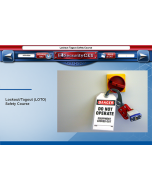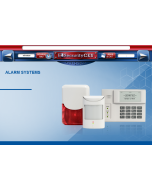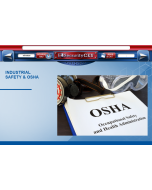Alarm Management
Alarm systems play a crucial role in safeguarding lives and property. This course will equip you with the knowledge to distinguish between false alarms and false dispatches and to identify the leading causes of false alarm signals. You will learn how to prevent installation issues that lead to false alarms and how to educate customers to help them avoid these problems. We will discuss the percentage of false alarms and the associated costs, providing real-world examples of their impact. The course offers an in-depth examination of user error, supplemented with examples, and explores how faulty equipment and improper installation contribute to false alarms. Additionally, we will delve into the role of advanced technology in effectively utilizing security and fire alarm systems to reduce false alarms.
Read more about the course in the course details below.
The course also covers the distinctions between fire and burglar alarms and elaborates on response procedures, including the implementation of two-call and enhanced call verification in various states, with a special focus on Florida's exception to enhanced call verification. We will touch upon the laws and regulations governing monitoring stations, emphasizing their responsibility to provide safety and security, avoid unnecessary alarm dispatches, adhere to codes and standards, and help reduce false alarms. Mobile applications that allow customers to monitor their premises via audio and video sensors will be discussed as powerful tools for expediting verification and saving valuable time. Finally, your critical role in reducing false alarms and dispatches will be highlighted, detailing the phases where you can make a significant impact.
Use the grid below to determine which states have CEU approval for this course, along with how many credit hours it has, and any other special instructions.
| State | Hours | Special Instructions |
| California | 1 | |
| Louisiana | 1 | |
| North Carolina | 1 | This course is approved for 1.00 hours of continuing education by the North Carolina ASLB. If you will be taking this course for CEUs in North Carolina, you must notify us and provide your license number and company name so we may submit the appropriate documentation. Please email support@securityceu.com or call 502-254-1590. |
| New Jersey | 1 | This course is approved for 1.00 hours of continuing education by the NJ Fire Alarm, Burglar Alarm and Locksmith Advisory Committee. If you are submitting this course for CEUs in NJ, you must contact us with your NJ license number so we may provide you with the appropriate certificate upon completing the course. Please email support@securityceu.com or call 502-254-1590 when you have finished taking the online content. We will then create your NJ specific certificate and email it to you within 24 hours. |












